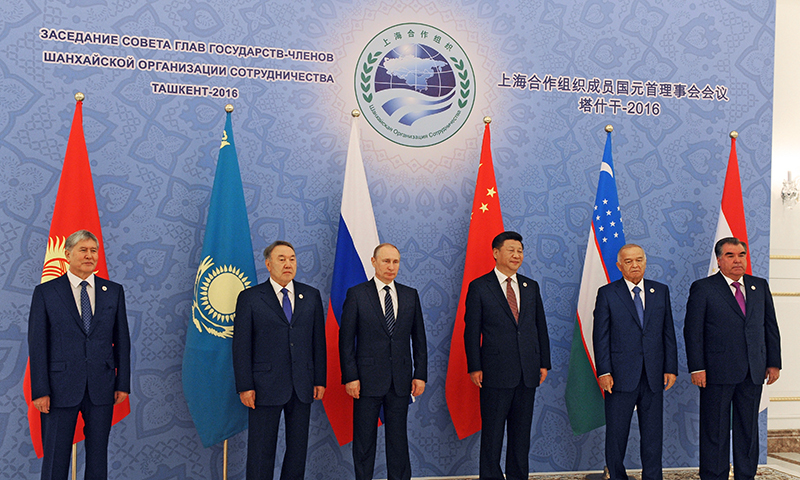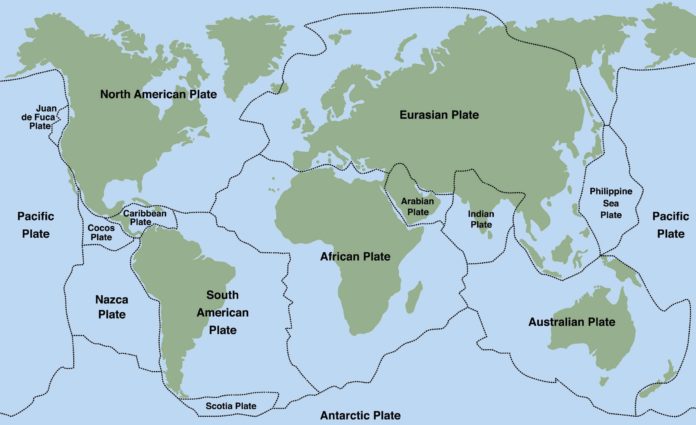Dear Readers,
A continent is commonly understood to be a massive landmass that is surrounded by oceans or seas, so it becomes obvious that Africa, Australia and Antarctica are, for the most part, separate and distinct continents. But nothing separates Europe from Asia to make them two distinct continents as there is, say, between Eurasia and Africa, or between North and South America. Eurasia is therefore Europe plus Asia having 93 independent countries, including Pakistan, with nearly half of the worlds 196 independent countries, Eurasia is truly a supercontinent. Pakistan is generally perceived by most western nations to be a back-wards country of terrorism and poverty, this is a myth that carries little factual weight as it purposely neglects the country’s rising geopolitical importance in Eurasia. Far from being a lost cause, Pakistan is actually one of the Eurasian continent’s most important economic hopes, as it has the potential to connect the massive economies of the Eurasian Union, Iran, SAARC and China, thereby inaugurating the closest thing to an integrated pan-Eurasian economic zone. With rapprochement between Russia and China steadily growing, Russia also recognizes Pakistan’s prime geopolitical potential and has maneuvered to rapidly increase its full-spectrum relations with Pakistan. Pakistan is well placed to take advantage of this developing situation and take its place as a nation that will matter in Eurasia. For the benefit of readers I am reproducing my article titled “THE EURASIAN CONCEPT”.
Continents being defined as “main continuous expanses of land” makes one wonder why Europe and Asia, though very much a continuous land mass have been perceived through the many centuries as two separate continents. One major reason may be that the western end of the Eurasian landmass was taking a very different turn in its development with renaissance, scientific and industrial revolutions and ‘modernity’ changing its economic, social and intellectual set-up fundamentally. Making the Ural Mountains the dividing line was rather an arbitrary act by geographers. British geographer Sir Halford Mackinder drew the attention to the fact as early as 1904,that Europe and Asia being one would be the future ‘pivot of history’.
It took more than a century, two world wars and the defeat of the communist system for this vision of a cornerstone of a new global of the ideological dreams to come true. Events though negative in some of their aspects, greatly sped up the process of globalisation that is the precondition for a new stage of global power distribution. From a world dominated by colonialism and imperialism creating a ‘third world’, the collapse of the ‘second’, the communist system that had made the world from bipolar into unipolar, we have come in the 21st century to see the unipolarity crumbling and a new international economic and political power sharing system coming into existence.
The first sign of Asia becoming the new pivot of history was the tremendous development of China into the world’s second largest economy. The West, particularly the US, challenged by this development started looking East, excited by the huge Chinese market but also frightened by the enormous power house. Obama’s ‘Asian pivot’ tried to turn American policy around and partake in the rapid development in Asia. He even referred to himself as the ‘first Pacific President’ but his efforts ended in abject failure.
When it became clear that the West would not keep out from what Russia considers its sphere of influence, Russia started looking east and at China, the new upcoming global power. While Sino-Soviet relations in the past had been always uneasy to say the least, after the collapse of the Soviet Union a China-Russia rapprochement began. In 1992, the two countries declared that they were pursuing a “constructive partnership”; in 1996 this turned into a “Strategic Partnership” till in 2001, they signed a treaty of “Friendship and Cooperation.”
One major result of this development is the Shanghai Cooperation Organisation (SCO). Founded in 2001, it is a Eurasian political, economic, and security organisation, the Cooperation Organisation Charter was signed in June 2002, and came into force on 19 September 2003. According to this charter, the organisation functions as a forum to strengthen confidence and neighbourly relations among member countries and promote cooperation in politics, trade, economy, and culture, to education, energy, and transportation.” Today it has broadened its focus to security related matters and economic cooperation. It has eight member states including Pakistan and India since 2017, four observer states including Afghanistan, Iran, Mongolia and Belarus and six dialogue partners (Turkey, Sri Lanka Nepal, Cambodia, Azerbaijan and Armenia). It is one of the main if not the major Eurasian organisation uniting the combined size and significance of its membership, which represents one-quarter of the world’s population and three-fifths of the territory of the Eurasian continent, includes two nuclear powers with permanent seats (China and Russia) on the UN Security Council and three confirmed ones (India, Pakistan and Israel) not on the Council.
While the SCO agenda is still evolving, this organisation is important because it stipulates a new way of states dealing with each other, namely it actively notes the diversity of its members in terms of their political and economic systems, scales of diplomatic and economic prowess, religions, cultures, and geography. In noting this diversity, the SCO claims to represent a new model of inclusive regional cooperation capable of encompassing all its members.

Recuperating after the break-up of the Soviet Union but left out in the cold by the West, Russia changed its focus by developing a project of its own the “Greater Eurasian Partnership”. Being a founding member of SCO In June 2016, Russian President Vladimir Putin , declaring the goal of “a comprehensive partnership between Europe and Asia on the basis of openness, transparency and consideration of each other’s interests, including the possibility of joining together the Eurasian Economic Union, the SCO, and ASEAN”.
The new developments are of great significance for Pakistan. Situated as a bridge at the crossroads of the Asian mainland between the different regions and powers, Pakistan’s special responsibility is to keep the region stable, our foreign policy commitment must mirror this. With over 1.8 billion people, South Asia has the world’s largest working-age population with a majority work force in the agriculture sector. The workshare of the services sector has increased significantly in the past few years. Sharing borders in Central and South Asia with its four neighbours i.e. China, Afghanistan, India and Iran and the oil-rich Gulf, this geopolitically important region’s natural resources and human capital makes the potential for growth enormous.
Our national security policy must structure the new geopolitical realities to rethink and create consensus (by public and institutional debate) about our fundamental national interests. The region’s volatility forbids our joining any bloc or having relationships with one country to the exclusion of another. Maintaining our neutral position we must not only keep the balance between our next-door neighbour Iran and an old friend Saudi Arabia, but also balance our relationship between our old ally, US with our new relations with Russia and our ever strengthening bond with China. As a concept Eurasianism encourages prevalence of regional relations over distanced ones, the SCO platform holds a promise for stability and options for negotiated resolution of crises for both Pakistan and India.
The Eurasian concept of accumulating economic power is a global-scale strategy that acknowledges the objectivity of globalisation and the weakening importance of nation-states. This different scenario entails no unipolar world or united global government, but offers several global zones that are not nation-states but a coalition reorganised into continental federations or “democratic empires” with a large degree of inner self-government. An alternative or multipolar version of globalisation, the Eurasian Idea accepts globalisation as the currently major fundamental world process deciding the main vector of modern history. For Pakistan this means that our future lies in the immediate region in the neighbourhood of Asian communities.
“The opinions/views expressed in Defence Journal are entirely those of the writers and cannot be construed to reflect the official views of Defence Journal”.




